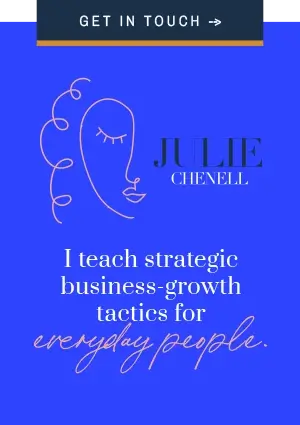Subscribe On:
Full Transcript:
Today I am doing a podcast to answer a specific sort of question, comment that one of my Digital Insiders brought up, and that was, “Why is nobody talking about what happens after your funnel works?”
I thought it was an interesting question because we spend a lot of time in marketing talking about how to get your funnel to work. And for a lot of people this seems to be the happily ever after. You know how in movies, like Disney movies when the end of the movie is they get married and it’s like, “Ah, there’s the ending.” Except that’s actually the beginning. That’s when life really starts. You’ll have to be married, you raise a family, all this kind of stuff, yet the movie ends there. I think that’s what happens a lot in marketing.
We talk about getting that funnel to work, when those ads finally convert, when your conversion rate is at a certain point and you’re just like, “Ahhh.” You know, and getting ready for your Two Comma Club award. But there’s so many things that happen once the funnel works, and a lot of people don’t talk about them.
So this morning I had a Voxer and she said, “I don’t know why, but all the sudden I’m feeling the weight of my funnel working and all the customers that it’s bringing and I can’t tell, is it me? Am I attracting the wrong customer? Is it just that my customers are needy because I haven’t set the right expectations? Or is that I’m just not used to it?”
And it was interesting because as I was thinking about it, I realized that for every single digital insider in my group who’s had a funnel that has eventually taken off, whether it takes off the first time around, or the third time around, or what have you, they all come to me with this same thing. I’ve had comments from insiders that say, “Oh my gosh, I think my funnel is attracting the wrong type of person, because I don’t really like this customer.” I’ve had this one, who this morning said, “I just feel so heavy with the responsibility of all these people.” And I’ve had others who’ve said, “Gosh, I think I’ve built the wrong business. I thought this was what I wanted, but I don’t.”
So this is the conversation that happens once the funnel works. And I’m going to throw a little shade here for a second. I think another reason why we don’t talk about it is there’s a pretty large population of internet marketers that don’t really care what happens after the sale.
Everything about their business and their energy is about making the sale, and then once the sale is made they’re kind of “Meh.” I don’t know. It’s not quite as exciting, definitely not as thrilling. So you find very little content on managing this. So I want to address this fact, and for those of you guys who have done a launch or you’ve got a funnel running and you started to get more customers, I guess what I wanted to say first is, you’re normal.
It is very normal to wake up with a whole boat load of new customers and think that you hate your customer. I’m going to argue that most of you probably don’t actually hate your customer, you just have mismanaged expectation. So we’ll talk about that first, so you hate your customer.
The second thing that happens to a lot of people is they just feel the emotional weight. Especially if you’re in a field or a market where you’re trying to help people grow businesses, lose weight, build relationships. These are like big problems, big solutions and they impact people’s lives in a really dramatic way. So that emotional responsibility is actually quite normal because if you care about people and you care about giving them a solution and it doesn’t work as intended, that can feel really draining.
And then the third is, you’re normal if one day you wake up and you feel kind of like you want to burn everything to the ground and start over. So let’s try and tackle each one of those moments or milestones because I think they’re really important.
The first one is when you wake up and you hate your customer. Now, for a small sub-section of people, you might actually be in a position where you marketed to the wrong person, and that does happen, and it’s painful and you have to figure out, do you shut your business down, do you transition out, what do you do? But for a lot of people, that’s the easy answer. “Oh I must hate my customer.” When often times before you’re successful in a funnel you’re doing everything in your business. Once your funnel works and you start having to be your own customer service person, pretty much everyone is going to hate their customer. Because customers in general, the bulk of them are awesome, and then there’s a sub-section of them that are kind of whiny or high maintenance or needy.
And this is just normal, I’m not trying to be negative about customers. But just in general. You’re always going to have customers who are, there’s going to be some that are awesome and amazing, and then there are going to be some that are squeaky. And I guarantee you the squeaky ones are going to be in your inbox before the awesome ones. Because if they’re super awesome they’re going to tell you, and it’s amazing. But if they’re just awesome in taking your product and using it, that’s like no news is good news. Except when you’re the owner of it, you don’t realize how much you want that encouragement, and then you end up with an inbox full of the squeaky ones.
So it’s kind of like, how shall I say it? It’s kind of like it’s not representative of what’s actually going on. So unless 30% of your customer base is pissing on you in your inbox, maybe you have 3 or 4% of people that aren’t happy, that’s normal. It’s just you happen to be hearing from them. So getting out of your inbox and out of your customer service as soon as humanly possible is important.
Think about a beloved company like Apple. I mean, obviously it’s huge and you know, the person who is actually designing the new whatever, iPhone or Macbook isn’t on the front lines of customer service, but I guarantee you there are thousands and thousands and thousands, maybe hundreds of thousands of people who absolutely hate Apple. You know, and maybe they actually bought the product and they’re the squeaky wheels in the customer service.
So get out of your inbox, that is the problem. Is that you are still in your inbox and that’s very, very typical for people who have early success in a funnel and they’re excited and they want to respond to all their customers. But also remind yourself that the majority of your customers are awesome people who are having success with whatever it is that you’ve sold, or they’re enjoying it, or what have you. And you’re only hearing a small sub-section of those who are unhappy, so try not to do the whole extreme, pull 3 or 4 negative messages and be like, “Uh, all my people, they’re just annoying. I don’t like them.” Okay? So that’s the first one.
The second one is, if you feel the weight of responsibility. And I’ve had a lot of people ask me about this because I feel like in the internet marketing space, I carry a level of emotional responsibility that a lot of people aren’t willing to carry, or don’t know how to carry. I have thousands of followers, I have thousands of students, and I have about 80 high end, high ticket clients who I work with one on one. So on any given day when I open up my Voxer, I’ll have between 40 and 60 messages every single morning. And it’s pretty reasonable that I would say 10 to 12 of those messages, are heavy messages. People are either in tears, they’re tired, they have a problem, because I mean, that’s what business is.
Business is literally just ascending different levels of clearing problems. It’s like a Mario game. I’ve used this analogy many times. You beat the boss in level one, then you beat the boss in level two. And business is literally just beating bosses, killing gumbas, you know, all this kind of stuff.
So it is normal that my Voxer would have about 10% of the comments and questions, really hard things to deal with . So the emotional responsibility that you feel, especially if you’re solving big problems, is totally normal. It’s actually a good sign. It’s a sign that you’re a human that has empathy, so give yourself a gold star for that. I think it’s always really good practice to learn how to own your stuff, and let other people own their stuff.
And you know, I think about this in parenting all the time. If William is having a complete meltdown because something happened that was really, actually legitimately disappointing. So for example, let’s say I told him that we were going to go to the playground, and then he gets sick and he can’t go. He’s going to be sad about that. So I can be sad for him and stay with him in it without being like, “It’s okay. I’ll get you a movie and I’ll get you a Mario, and I’ll get you some lollypops, and try to make up for it. Because is that really helping him or is that helping me feel better?
And the reason why we do that to ourselves is because we’re trying to make ourselves feel better because we don’t like feeling the pain of somebody else. But that’s just part of the human experience.
So as your customer base grows, as you start to solve these problems and you have problems that are ending up in your lap that really aren’t ultimately yours to solve, learn how to practice a little meditative detachment is going to be incredibly critical, especially as you grow in scale. Because one any given day, I still need to be Julie, the mom, Julie the wife, Julie the business owner. And I need to be able to hold space for people who have problems and be with them in it, but not let it take me down at the same time.
So that’s also normal as well. It’s a lot. Especially when people don’t anticipate this, because all they’ve done is think about what’s it going to be like when my funnel actually works? So the third one is about feeling like you want to burn it all to the ground. Believe it or not, this one is also entirely normal. It’s very normal if you’ve actually had success very quickly.
The reason why quick success can cause that, more than slow success, slow success allows you to sort of adapt and get used to the level as it grows. Whereas quick success usually means your revenue has taken off, your customer base has taken off, but your systems haven’t necessarily caught up with that, and you know, hat tip to James Friell, he says, “Systems are people, process, and tools.” right. So we oftentimes don’t have enough people, employees, contractors, we don’t have enough standard operating procedures and processes in the business. And maybe the tools that we’re using aren’t going to work for what we’re trying to accomplish.
So rapid growth creates rapid problems, that are big problems. And the stakes are high. And I’ve actually watched this, even in my time working for Clickfunnels, and watching Russell, I mean, Clickfunnels grew so frickin fast. And the burden of responsibility on Russell who is the CEO was just intense. And sometimes I could just see, his eyes were kind of wishing for the days when life was simpler. When there wasn’t so much at stake, when the pressure wasn’t so high.
So if you have rapid growth, which in one sense we all want, but in another sense I would say the slow and steady growth is maybe not as sexy, but certainly a little easier. It’s going to feel very normal and natural to want to burn it to the ground at some point because it’s going to feel way messier than you anticipated. Because your anticipation was just thinking about what’s it going to feel like when I hit a million dollars? Or what’s it going to feel like when I hit 5 million dollars? But you didn’t actually think about the ramifications of what that was going to mean from an expense and system standpoint. You know?
The other thing is that entrepreneurial personality types, and it would be really helpful to know what your personality type is, and what your tendencies are, because in that sense there are certain personalities that are designed to always be go, go, go. What’s the next thing, what’s the next thing, what’s the next thing? For those personalities, maintaining a structure that grows quickly is one of the most exhausting things for their personality, and they would much rather be in that early planning, exciting, unpredictable start up phase.
So be careful when your growth hits and you feel that way. Because first of all you should never make a decision when you actually feel that way, you should wait until your more stable. But secondly you may burn something to the ground that you don’t want to burn to the ground, you just don’t want to be the person who has to manage it. So that’s an important thing that you can work out with a coach or a mentor.
So if you have thought that maybe you hated your customer, if you have ever felt the emotional responsibility of getting your clients results, or if you’ve ever felt like you wanted to burn your business to the ground, I’m here to tell you that all three of those feelings are entirely normal and not talked about enough. So I hope this was helpful and I appreciate you guys, and I’ll talk to you soon.









0 Comments